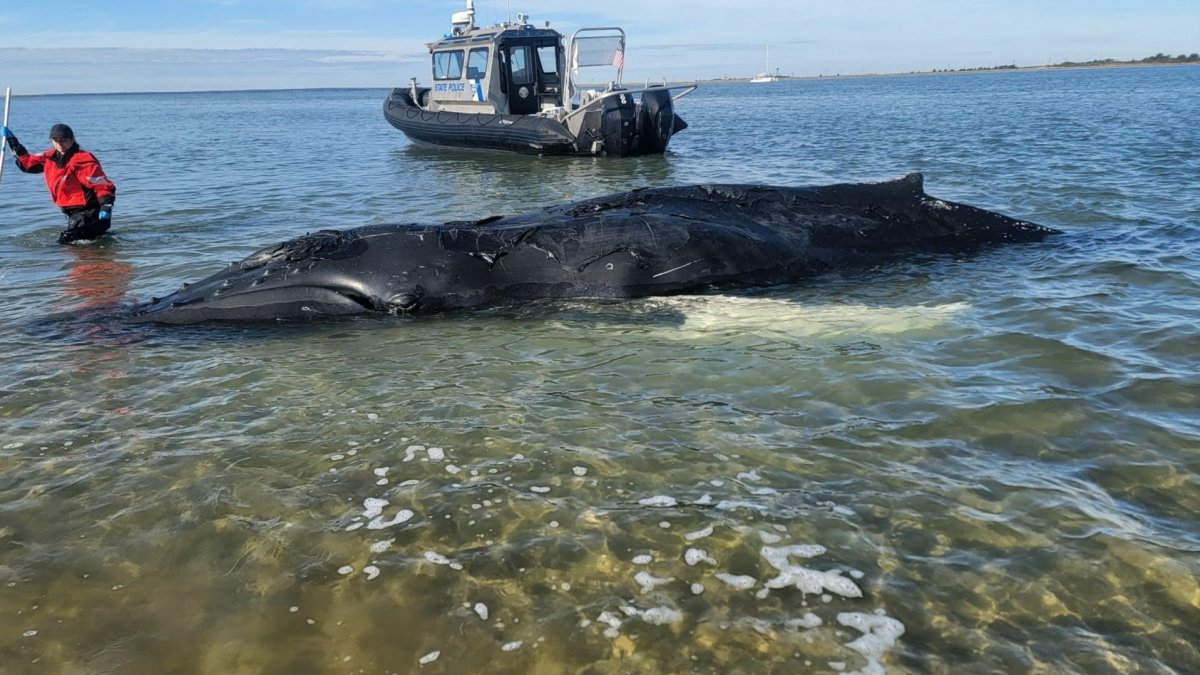A young and injured humpback whale died after becoming stranded on a sandbar off the coast of Long Beach Island, officials shared.
According to the Marine Mammal Stranding Center (MMSC), on Friday, October 17, 2025, around 3 p.m., they received a report from the New Jersey Department of Environmental Protection that their aerial survey team spotted a whale in shallow water off the west side of Holgate as they flew over the southern end of Long Beach Island.
Due to the lack of daylight and because the whale was only accessible by boat, the operations to check on the animal were suspended until Saturday morning, MMSC said.
MMSC shared that once their team was able to relocate the whale, they identified it as a young humpback measuring around 29 feet in length.
The whale was found to be lethargic, very thin and had wounds consistent with a previous propeller strike across both its left and right dorsal sides.
MMSC said that after a medical assessment, it was determined that “the whale’s prognosis was extremely poor and was unlikely to survive.”
“The impact of stranding on cetaceans (dolphins and whales) is traumatic as their body weight and organs are normally supported by the water around them. When a cetacean is stranded for any length of time, their own body weight causes crushing damage to their internal organs, which lessens their chances of survival. It is unknown how long the whale had been stranded before it was reported. The decision was made to humanely euthanize the whale to prevent further suffering,” said MMSC.
Due to heavy beach erosion from the previous week’s storm, officials said it hindered their chances to remove the animal from the area to be euthanized that Saturday evening.
Officials said they administered sedatives to keep the animal comfortable in the meantime, but the next morning, Sunday, October 19, 2025, it was found that the animal had passed away overnight.
“At that time, it was evident that the young whale had experienced significant trauma due to propeller strikes that were still in the process of healing, and the wounds were impacting the animal’s ability to feed based on the very thin body condition,” MMSC shared. “Our entire team is deeply saddened by every deceased animal that we investigate, but the ones that hit the hardest are animals like this young whale who never got the chance to contribute to their species.”

